Student-oriented Web sites are making the grade.
Published:
10 February 2001 y., Saturday
Sites catering to college-bound high schoolers are linking potential candidates with study guides, financial aid programs, scholarship awards and athletic opportunities to make the transition from high school to university fast, efficient and economical.
Today's high school students are more Web-savvy than ever. Students consider the Web to be the second most important resources available to them -- second only to their guidance counselors, according to a study cited by Campus Pipeline Inc., a Salt Lake City, Utah-based vendor of enterprise software to about 65 colleges and universities. The survey was conducted by the Arts & Sciences Group, a private consulting group.
And teenagers are increasingly using the Internet to assimilate and share information, as well as evaluate products to make informed purchase decisions. According to Jupiter Research, 47 million teens and kids will be online by 2005, as a result the growing integration of the Internet into the educational curriculum will be a contuing catalyst for online adoption.
No doubt, evaluating data in the college selection process is part of this estimation. More and more college applications are being completed online. Further, as Web sites set up by individual colleges and universities expand, there are complimentary locations that exist exclusively to assist students with their pre-college needs and concerns.
Šaltinis:
internetnews.com
Copying, publishing, announcing any information from the News.lt portal without written permission of News.lt editorial office is prohibited.
The most popular articles

The European Commission announced today the award of three of the six contracts for the procurement of Galileo’s initial operational capability.
more »
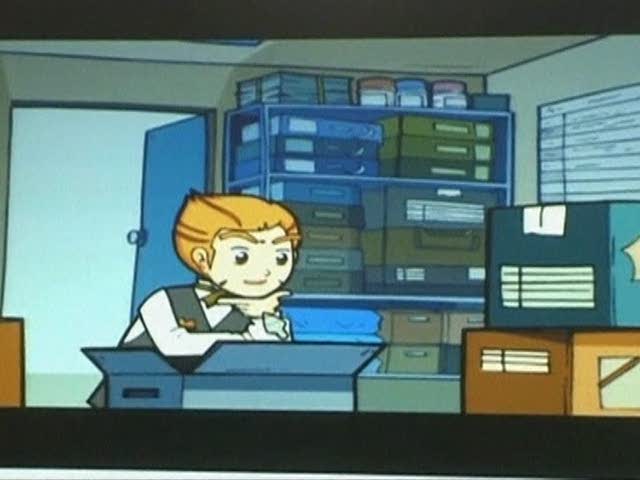 South Korea is pushing forward with a plan to completely digitize its classrooms by 2015.
more »
South Korea is pushing forward with a plan to completely digitize its classrooms by 2015.
more »
 A blood test that determines the length of telomeres, the protective caps at the ends of chromosomes that wear down as we get old, are now on sale to the public. The researchers who developed the test say it will allow people to get a sense of how fast they are ageing.
more »
A blood test that determines the length of telomeres, the protective caps at the ends of chromosomes that wear down as we get old, are now on sale to the public. The researchers who developed the test say it will allow people to get a sense of how fast they are ageing.
more »
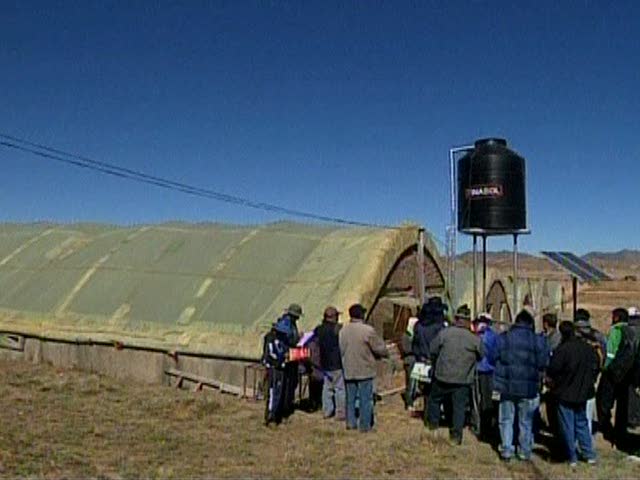 On the windswept high plains of Bolivia, an energy revolution is under way. Small communities, never connected to the power grid, now have access to electric power for the first time through solar and wind power systems, introduced one village at a time by engineers at a Cochambama University.
more »
On the windswept high plains of Bolivia, an energy revolution is under way. Small communities, never connected to the power grid, now have access to electric power for the first time through solar and wind power systems, introduced one village at a time by engineers at a Cochambama University.
more »
 A robotic mouth may not seem like a must-have accessory for your robotic workforce but Japanese researchers say that future human-robot communications may well depend on such devices. The mouth was just one of many robotic innovations on display at this year's Robotech expo in Tokyo.
more »
A robotic mouth may not seem like a must-have accessory for your robotic workforce but Japanese researchers say that future human-robot communications may well depend on such devices. The mouth was just one of many robotic innovations on display at this year's Robotech expo in Tokyo.
more »
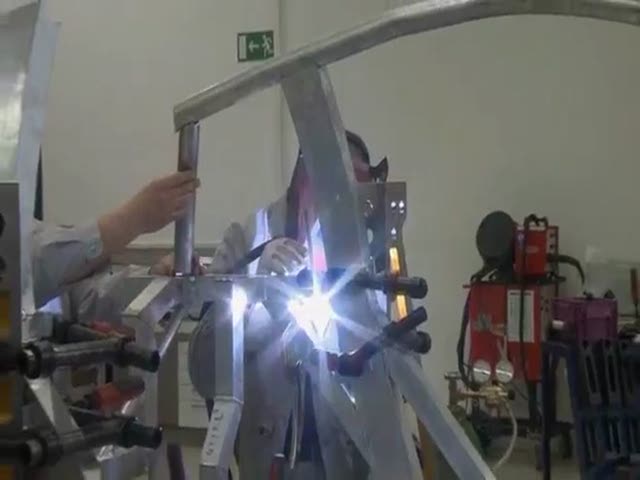 Scientists from Munich's Technical University will be joining the world's major car manufacturers at the Frankfurt Auto Show later this year, with an electric vehicle they have designed and built themselves.
more »
Scientists from Munich's Technical University will be joining the world's major car manufacturers at the Frankfurt Auto Show later this year, with an electric vehicle they have designed and built themselves.
more »
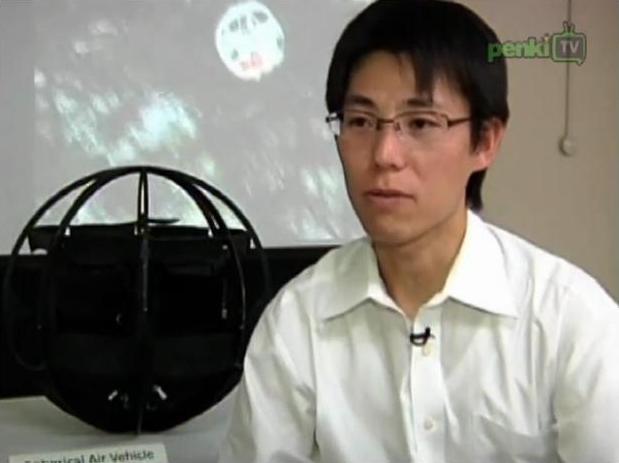 Researchers from Japan's Ministry of Defense have developed an unmanned aerial vehicle with a difference.
more »
Researchers from Japan's Ministry of Defense have developed an unmanned aerial vehicle with a difference.
more »
 An Israeli company hopes to revolutionize the green solutions market with solar windows that combine electricity production, energy reduction and transparent design.
more »
An Israeli company hopes to revolutionize the green solutions market with solar windows that combine electricity production, energy reduction and transparent design.
more »
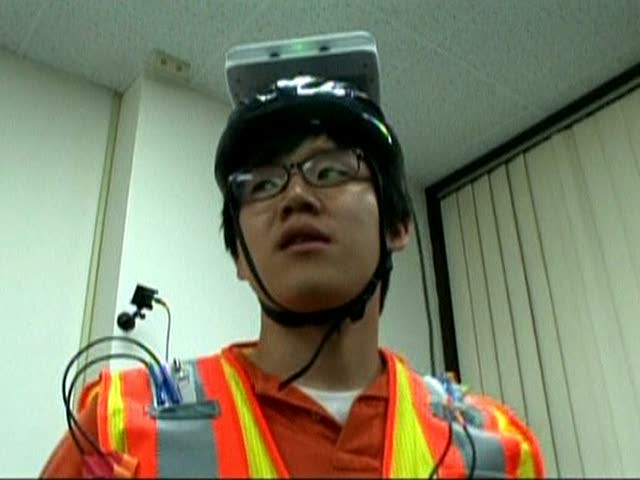 Guide dogs and white canes have, for years, helped the blind and visually impaired navigate the world around them but soon, technology may also have an important part to play.
more »
Guide dogs and white canes have, for years, helped the blind and visually impaired navigate the world around them but soon, technology may also have an important part to play.
more »
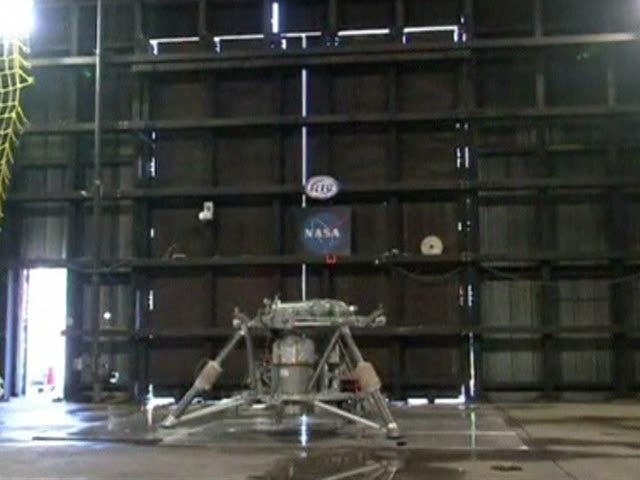 Infrared video released by US space agency, NASA, shows how future robotic landers might hover and land autonomously on asteroids or lunar surfaces. The agency has been testing the compact vehicles for missions to airless environments where parachutes will not work.
more »
Infrared video released by US space agency, NASA, shows how future robotic landers might hover and land autonomously on asteroids or lunar surfaces. The agency has been testing the compact vehicles for missions to airless environments where parachutes will not work.
more »
 Small fin-propelled robots may soon be plunging in to the depths of the human body, helping patients find checkups easier to stomach.
more »
Small fin-propelled robots may soon be plunging in to the depths of the human body, helping patients find checkups easier to stomach.
more »